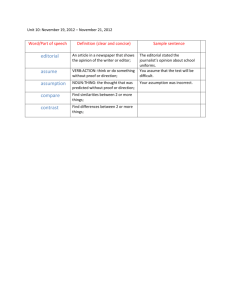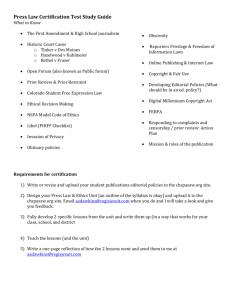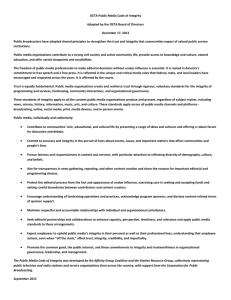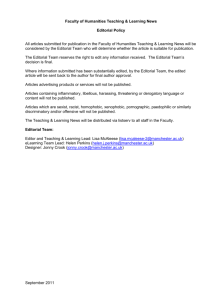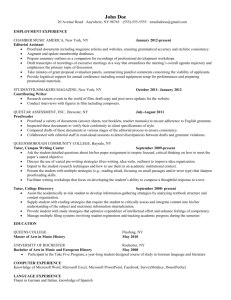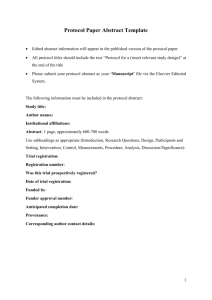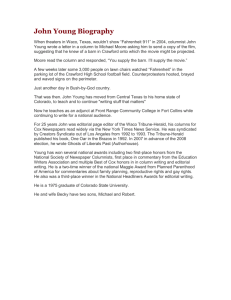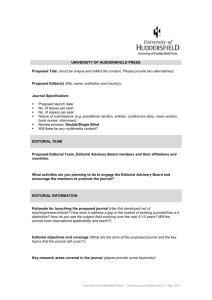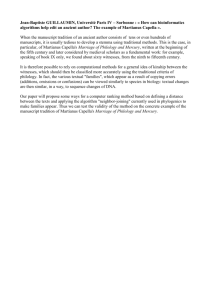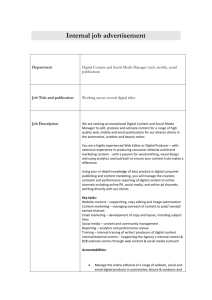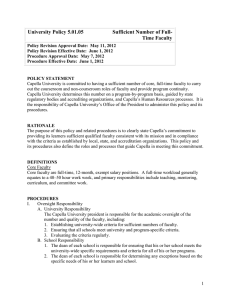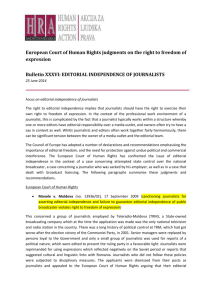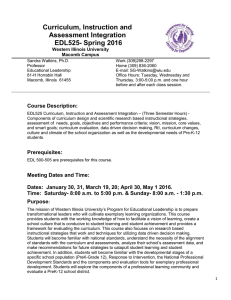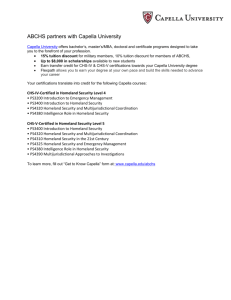M.Moore_THE AMERICAN JOURNAL OF DISTANCE EDUCATION
advertisement
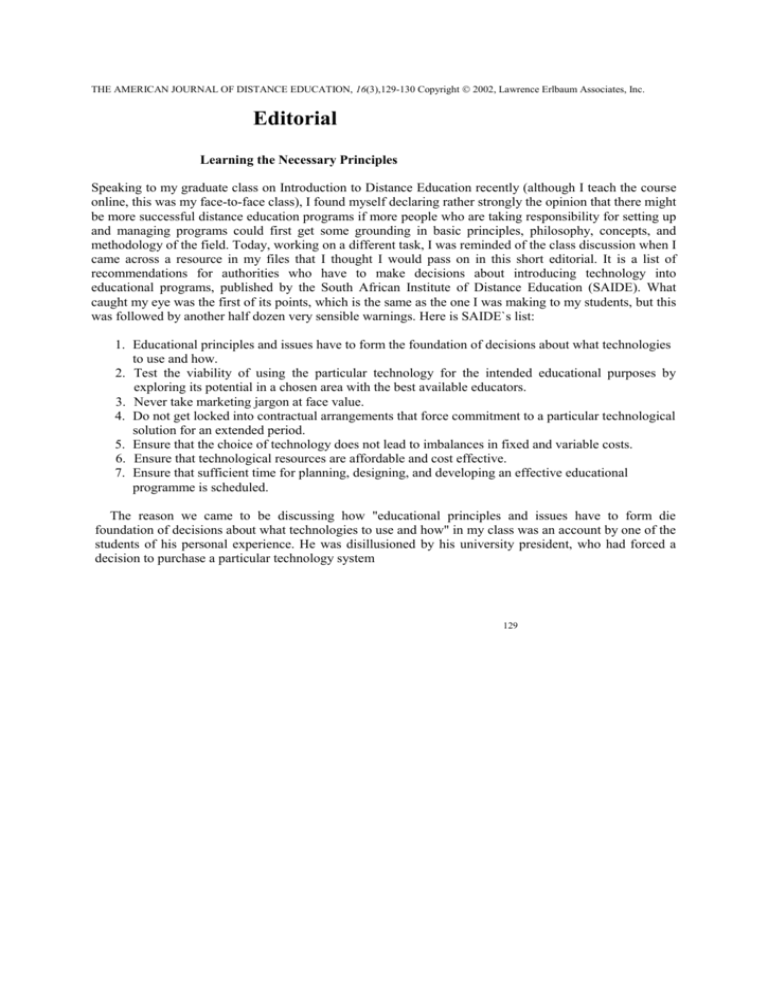
THE AMERICAN JOURNAL OF DISTANCE EDUCATION, 16(3),129-130 Copyright 2002, Lawrence Erlbaum Associates, Inc. Editorial Learning the Necessary Principles Speaking to my graduate class on Introduction to Distance Education recently (although I teach the course online, this was my face-to-face class), I found myself declaring rather strongly the opinion that there might be more successful distance education programs if more people who are taking responsibility for setting up and managing programs could first get some grounding in basic principles, philosophy, concepts, and methodology of the field. Today, working on a different task, I was reminded of the class discussion when I came across a resource in my files that I thought I would pass on in this short editorial. It is a list of recommendations for authorities who have to make decisions about introducing technology into educational programs, published by the South African Institute of Distance Education (SAIDE). What caught my eye was the first of its points, which is the same as the one I was making to my students, but this was followed by another half dozen very sensible warnings. Here is SAIDE`s list: 1. Educational principles and issues have to form the foundation of decisions about what technologies to use and how. 2. Test the viability of using the particular technology for the intended educational purposes by exploring its potential in a chosen area with the best available educators. 3. Never take marketing jargon at face value. 4. Do not get locked into contractual arrangements that force commitment to a particular technological solution for an extended period. 5. Ensure that the choice of technology does not lead to imbalances in fixed and variable costs. 6. Ensure that technological resources are affordable and cost effective. 7. Ensure that sufficient time for planning, designing, and developing an effective educational programme is scheduled. The reason we came to be discussing how "educational principles and issues have to form die foundation of decisions about what technologies to use and how" in my class was an account by one of the students of his personal experience. He was disillusioned by his university president, who had forced a decision to purchase a particular technology system 129 EDITORIAL without, apparently, any vision of why his institution should develop a distance education program or the direction a program would take, and even less idea of the instructional and administrative implications of doing so. As the student said, it was predictable that under such circumstances the program would fail, and what happened with the technology was that it was reduced to merely administrative uses. Distance education soon acquired a rather bad reputation with the faculty and other stakeholders in this particular university. My student proposed (and who could disagree?) that such disappointments would be less likely if the president and other administrators had a reasonable understanding of the history and precedents of applying technology for distance education; some knowledge of the strengths and weaknesses of the different technologies for presenting lesson materials and for carrying teacher-learner and learner-learner interactions; knowledge of basic instructional design principles and the time and human resources needed to build good quality lessons using one technology compared to others; a feel for time and resources needed to provide student support on each of the technologies; and, perhaps particularly important, a vision of the comparative advantage of the institution that suggests what programs are likely to succeed and what ought to be avoided. Just a few years ago it would be hard or impossible to find such programs of training and study, but that is no longer the case. My courses are in Pennsylvania State University's Certificate in Distance Education series, available online through the World Campus. It's not as easy to find the course information as I would like it to be, so here is a (long) URL that will help you if you want more information: http://www.worldeampus.psuAu/pub/adted/afs-ßched.shtml The University of Maryland University College offers a Master's degree in distance education online (http://www.umuc.edu/mde/), as does Nova University (http://itde.nova.edu/itde/metawiiidow.htnü), Capella University (http://www.classesusa.com/featuredschools/capella/), and the University of London (http://www.londonexternal.ac.uk/postgraduate/inst-edueation/disLed/syllabus). More than fifty programs of training and study are listed at the site http://www.dlcoursefinder.com/egi-bin/searchc.pl Michael Grahame Moore Editor 130

